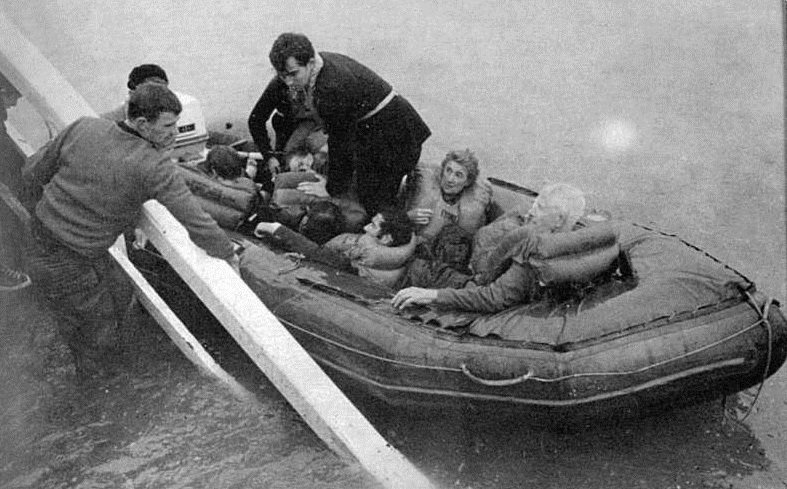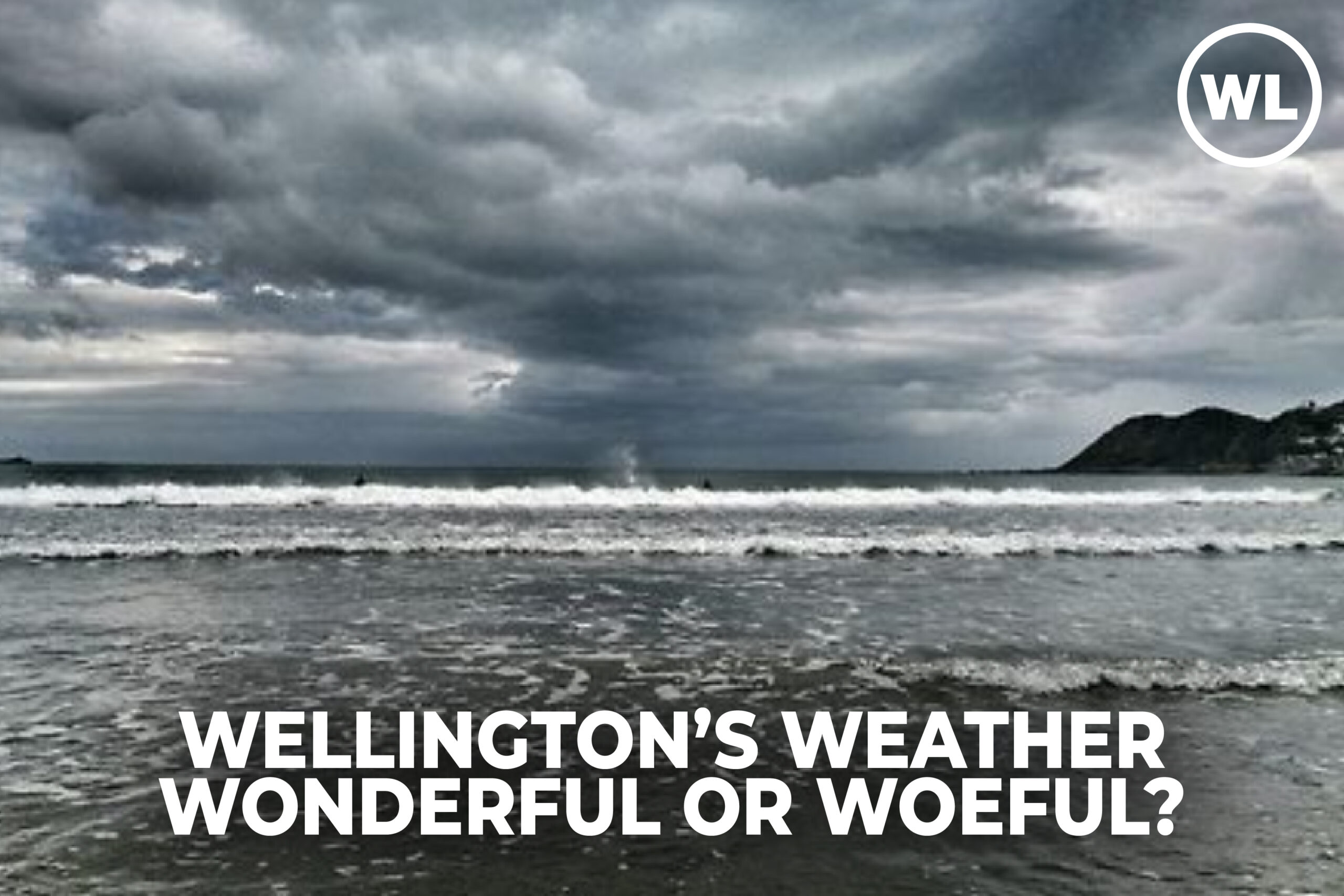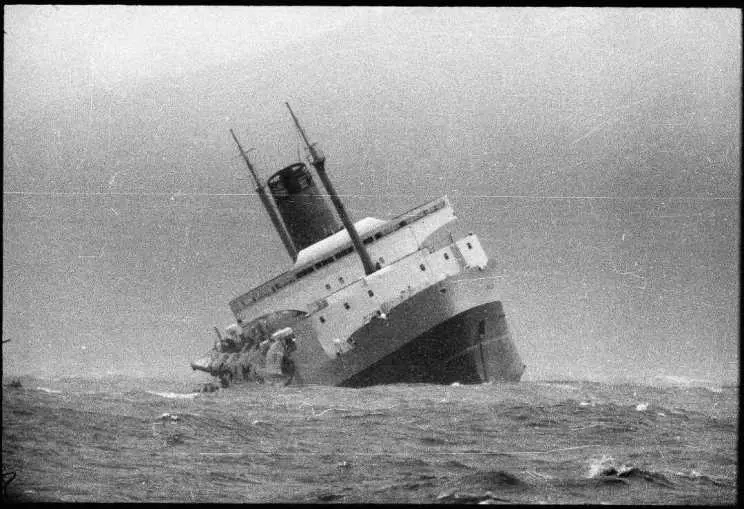Wellington LIVE nonstop Book Review
“Charing Cross” is a famous well-known Wellington identity that doesn’t want to be identified and still loves to write, share, critique, and have a bit of fun.
 “The Team That Hit the Rocks The Inside Story of the Wahine Disaster” written by Peter Jerram, is a compellingly interesting, if sometimes bafflingly bizarre account byone who was on that ferry trip.
“The Team That Hit the Rocks The Inside Story of the Wahine Disaster” written by Peter Jerram, is a compellingly interesting, if sometimes bafflingly bizarre account byone who was on that ferry trip.
Among the 735 passengers that boarded the new, modern ferry Wahine on April 9th, 1968 were the 15 fit young members of the Lincoln College Cricket team that the author was a member of. Looking forward to a routine trip and a convivial evening in the bar followed by a prepaid breakfast before disembarking in Wellington and catching the train to Palmerston North.
They and their fellow passengers are blissfully unaware of the unfolding drama they will awaken to: cyclonic, tumultuous weather. But all were reassured by the captain’s message:
“We are in no immediate danger”
Well, was he wrong!
This lack of appreciation by the Captain and senior officers, of the critically dangerous position the ship, passengers, and crew were in led to critically inadequate communication with passengers, crew, and shore personnel and exacerbated the panic that ensued when six and half hours later the order to “abandon ship” was suddenly given. With a shortage of immediately available Life Jackets; a crew not readily identifiable due to not wearing uniforms; and a crew lacking in emergency and lifeboat drills, it was every man, woman, and child for themselves!
 We all know the result of that order: 51 lives were lost, and all possessions and vehicles to the bottom of the sea. And all blamed on the storm.
We all know the result of that order: 51 lives were lost, and all possessions and vehicles to the bottom of the sea. And all blamed on the storm.
Having told of the panicked scramble to leave the ship and the harrowing stories of survival amid the incredibly stirred-up seas and the transit to shore,
In part 2 the author examines the hurriedly convened Court of Inquiry’s published report. It took 26 working days with no critical cross-examination of a number of key witnesses.
And arrived arrive at a no-fault conclusion. A whitewash. Who had the most to gain from this? It certainly wasn’t the survivors who received no compensation and long-lasting Trauma to battle with.
This expose is well worth a read. The author from personal experience draws on many different sources as he digs deeply into oral and written testimony to find what really happened on that horrific day. Even for the most uninformed landlubber, he makes it very easy to comprehend how the reduction of speed, refusal to use the flume stabilizing tanks to correct the rolling, and not recognizing the effects of 3000 tons of seawater sloshing about in cavernous vehicle f deck would have. Disaster.
The author and his cricket team picked themselves up returning to their studies but did not escape unscathed. It took many years and reunions for a recognition of how they had all suffered psychologically but thankfully, they have emerged stronger “a band of brothers”.
It’s a good-looking book. Poignant black and white photographs front and back introduce the subject, and the good-sized black font on white pages makes for enjoyable fast reading.
Sprinkled through the book are the author’s recollections about his thoughts at the time. Some are funny; some are questioning; some are so panicky about the immediacy of a young man about to jump for his life into a raging tumultuous sea All in all, a highly recommended read, much enjoyed by your reviewer.
A couple of closing comments to ponder over your morning coffee:
A month or so ago, Wellington Live broke the news of the Aratere grounding after just leaving Picton. My blood ran cold: 3 days previously we’d been on herself; her husband; her car and her beloved pet. Will we ever, in the short term and until the new ferries arrive (but when is another issue??) risk a ferry as opposed to Sounds Air crossing?
Even now, are the safety briefings on the ferries all they really ought to be given the potential for disaster? Remember the Kaitaki, wasn’t it, a year ago drifting without power and heading towards the rocks? And contrast the airlines’ screen-based safety briefings with the ferries over the “loudspeaker” wordy briefings, which seem much ignored.
Would a few large TV screens and some airline-type “fun” focus on the key information be an idea?
Share with us any personal experiences of facing up to possible disasters.
TRUTH SEEKER
Instantly run a Quiz with friends... about the article. Interact more & analise the story. Dig in, catch out biased opinions, and "fact check" with TRUTH SEEKER by ONENETWORK WELLINGTONLIVE 👋
Do you agree with the main argument of this article?
Total votes: 0
How many lives were lost in the Wahine disaster?
Bias Analysis
Fact Check Summary
False, the article states that 51 lives were lost.
Source: Article
False, the article mentions that the Court of Inquiry arrived at a no-fault conclusion.
Source: Article








